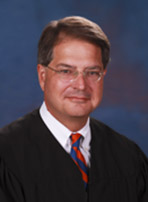Two New Additions to Hillsborough County’s Family Law Bench
Two judges have recently joined Hillsborough County’s Family Law/Domestic Relations Division. Below you will find brief profiles:
 The Honorable Cheryl K. Thomas
The Honorable Cheryl K. Thomas
The Honorable Cheryl K. Thomas joined the Family Law Division in January 2011. Judge Thomas was initially appointed to the bench in December of 2000 and then elected in September 2002. Judge Thomas has also served in the county criminal and county civil courts.
Judge Thomas has been involved in the following organizations:
- Progress Village Little League;
- Coalition of 100 Black Women;
- Greater Friendship M.B. Church; and
- Women’s Army Corps.
The Honorable Thomas P. Barber
 The Honorable Thomas P. Barber joined the Family Law Division in January 2011. Judge Barber was initially appointed to the bench in 2004 and then elected in 2006. Judge Barber has also served in the circuit criminal and county criminal courts, as well as the Election Canvassing Board.
The Honorable Thomas P. Barber joined the Family Law Division in January 2011. Judge Barber was initially appointed to the bench in 2004 and then elected in 2006. Judge Barber has also served in the circuit criminal and county criminal courts, as well as the Election Canvassing Board.
Judge Barber has authored numerous articles and taught complex litigation and trial advocacy as an adjunct professor at Stetson Law School. Further, Judge Thomas has been involved in the following organizations:
- Meals on Wheels;
- Tampa Crossroads;
- Bay Area Legal Services; and
- Cub Scouts.

